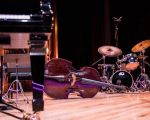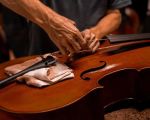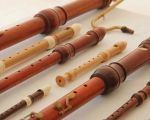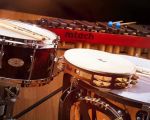- Importance of Choosing the Right Piano for Classical Music
- Key Considerations for Classical Musicians When Choosing a Piano
- Types of Pianos Best Suited for Classical Music
- Top Piano Recommendations for Classical Musicians
- Case Study: Piano Selection for a Classical Musician
- Conclusion: Finding the Best Piano for Classical Music
Importance of Choosing the Right Piano for Classical Music
When it comes to classical music, the piano plays a crucial role in bringing compositions to life. Whether you're performing in a concert hall or practicing in your living room, choosing the right piano can make a significant difference in the sound quality, touch, and overall musical experience. Classical musicians, in particular, require pianos that offer a high level of precision, responsiveness, and rich tonal quality to accurately interpret the music of legendary composers like Bach, Beethoven, and Chopin.
For a classical musician, selecting the best piano is more than just a matter of preference—it is an essential decision that impacts performance and practice. A piano that suits your playing style, technique, and repertoire can help you reach your full potential as a musician. In this article, we will explore the factors that influence the choice of the best piano for classical musicians, types of pianos that work best for classical music, and some top recommendations for quality pianos.
Key Considerations for Classical Musicians When Choosing a Piano
Choosing the best piano for classical music involves evaluating several important factors that affect performance and comfort. Here are the key considerations for classical musicians:
1. Sound Quality
For classical musicians, the sound quality of the piano is paramount. Classical music often requires a piano with a rich, full sound that can express the dynamics and nuances of the music. A good piano should have a clear, balanced tone across all registers—from the deep bass to the bright treble. Look for pianos that produce a pure, resonant sound that can be shaped by your touch.
2. Touch and Action
The touch and action of a piano refer to how the keys respond to your fingers. For classical musicians, a sensitive, responsive touch is crucial for playing fast passages, precise articulation, and dynamic control. The action should be smooth but not too light, with enough resistance to allow for expressive playing. Some musicians prefer a heavier touch, while others like a lighter one, so it's important to find a piano that matches your playing style.
3. Piano Size and Space
Another factor to consider when choosing a piano is the size and space available in your home or practice room. Grand pianos are generally considered the best choice for classical music due to their larger soundboards and superior tone, but they also require more space. If space is limited, an upright or digital piano might be a more practical option. Ensure that the piano you choose fits well in your space without sacrificing the quality you need.
4. Budget
While classical musicians may prefer high-quality grand pianos, budget is always a consideration. Grand pianos can be quite expensive, but there are also excellent upright and digital options that offer great sound and touch at a lower price point. Consider your budget and how much you’re willing to invest in your instrument, keeping in mind that a high-quality piano is an investment that will serve you for many years.
Types of Pianos Best Suited for Classical Music
There are several types of pianos that classical musicians can choose from, each offering its own advantages and disadvantages. Here are the most common types of pianos suitable for classical music:
1. Grand Pianos
Grand pianos are widely regarded as the best choice for classical musicians due to their superior sound quality, larger size, and exceptional resonance. The horizontal design of a grand piano allows for a larger soundboard, which produces a fuller and more vibrant sound. Grand pianos come in various sizes, including baby grand, concert grand, and semi-grand, with concert grands being the largest and most expensive. The larger the grand piano, the more powerful and dynamic the sound it produces.
2. Upright Pianos
Upright pianos are a more compact and affordable option for classical musicians, making them a great choice for those with limited space or budget. While they do not offer the same sound quality and volume as grand pianos, upright pianos can still provide a good playing experience, especially for beginner to intermediate classical musicians. These pianos are ideal for smaller practice spaces, apartments, or those who need a more budget-friendly option without compromising too much on tone quality.
3. Digital Pianos
Digital pianos have come a long way in terms of sound and touch, making them a viable option for classical musicians, particularly for those who are practicing at home or on a budget. Many digital pianos now feature weighted keys that mimic the feel of acoustic pianos, along with high-quality sound samples of concert pianos. While digital pianos do not have the full resonance of an acoustic piano, they are portable, easy to maintain, and often come with built-in features like recording capabilities, headphone jacks, and volume control.
Top Piano Recommendations for Classical Musicians
If you're a classical musician looking for a high-quality piano, here are some top recommendations to consider:
1. Steinway & Sons Grand Pianos
Steinway & Sons is renowned for producing some of the finest pianos in the world, making them a top choice for classical musicians. Their grand pianos are known for their rich, resonant sound and responsive touch. Steinway pianos are commonly found in concert halls and professional studios, and they are favored by many of the world’s leading pianists.
2. Yamaha CFX Grand Piano
The Yamaha CFX grand piano is a top-tier instrument known for its precise action and powerful sound. It’s a favorite among classical musicians for its clarity and projection, making it ideal for concert performances. The CFX combines advanced engineering with a deep, expressive tone, making it one of the best grand pianos for serious musicians.
3. Kawai GX Series Grand Pianos
The Kawai GX Series offers a range of grand pianos that are perfect for classical musicians. These pianos feature a responsive action and an impressive tonal quality, with a focus on long-term durability and stability. Kawai pianos are known for their clarity and smoothness, making them suitable for a variety of classical repertoires.
4. Roland HP Series Digital Pianos
For classical musicians on a budget or those in need of a more portable option, the Roland HP Series digital pianos are highly recommended. These digital pianos offer an authentic feel and impressive sound quality, thanks to Roland’s advanced sound modeling technology. While not as powerful as grand pianos, the HP Series is a great option for practice and performance in smaller spaces.
Case Study: Piano Selection for a Classical Musician
Meet John, a classical pianist who has been performing for over 20 years. John was looking for a new piano to replace his old upright. He wanted an instrument that could handle the demands of his concert performances while also providing a comfortable touch for his daily practice sessions. After carefully considering his options, he decided to invest in a Steinway & Sons grand piano. John found that the rich tone and responsive action of the Steinway allowed him to express the subtle nuances of classical music with greater ease. He also appreciated the longevity and tradition associated with the Steinway brand, which made him feel confident in his decision.
Conclusion: Finding the Best Piano for Classical Music
Choosing the best piano for a classical musician involves careful consideration of various factors such as sound quality, touch, size, and budget. Whether you’re opting for a grand piano for its superior sound, an upright piano for practicality, or a digital piano for versatility, selecting the right instrument can elevate your musical experience. Take the time to try different pianos and evaluate their qualities to find the perfect match for your style and needs.
If you're looking for more tips on choosing the right piano or exploring different models, be sure to check out Beat Trigger for top recommendations and expert advice.








